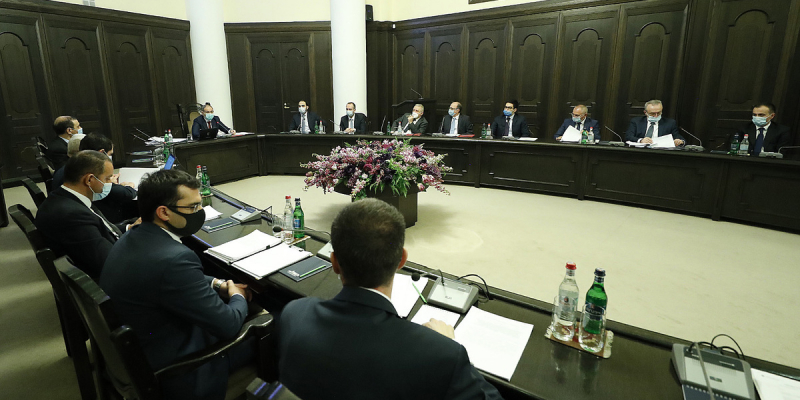The RA Government approved the draft amendments to the laws on “Higher Education and Science” and related laws at the sitting of December 3.
The draft law on “Higher Education and Science” proposes fundamental changes in the field of higher education and science. In particular, it is planned to unite the two previously existing basic laws: the law on “Scientific and Scientific-Technical Activities”, adopted in 2000, and the law on “Higher and Postgraduate Professional Education”, adopted in 2004, with the full regulation of the field to be regulated by the Law on “Higher and Postgraduate Professional Education”.
The objective of the new legislative regulation is to increase the efficiency of the management of education and science systems. In particular, the principles and mechanisms of providing state financial support to higher education institutions and scientific organizations are defined. It is proposed to provide state scholarships, reimbursement of tuition fees. The necessary legal basis is set for the convergence and gradual integration of cooperation between scientific organizations and higher education institutions, with the creation of opportunities for independent functioning of scientific organizations, the formation of research networks and consortia, or inclusion in higher education institutions as research institutions. The draft law envisages for bringing the current postgraduate programs in line with pan-European criteria, including them in the higher education system as a third level qualification - an educational program, at the end of which a Ph.D. qualification is awarded. The basic education programs of higher education according to educational levels can be implemented with a full or partial load of the student, including distance learning methods. This will enable the students to adjust their study load based on their abilities, employment and financial capabilities. Two or more universities (including foreign ones) can jointly develop and implement educational programs and assign qualifications of a particular level of higher education, which is certified by a joint graduation document (diploma) issued by participating universities or separate graduation documents (diplomas) of one or all participating universities.
To enhance the efficiency of management, the draft law envisages limiting the staff of the university governing board to 12 members, 6 of which will be nominated by the university (including one student), and the other 6 will be representatives of the business community, the public sector, representatives of education, science and culture. It is prohibited to include state or political officials in the university governing board.
The draft law stipulates that regardless of the organizational and legal form and status of higher education institutions, an examination in the subject "Armenian language" becomes mandatory for admission of the RA citizens to higher education institutions in any educational program of a bachelor's degree. A number of new regulations have been issued regarding he provision of academic freedom and the operation of management mechanisms for universities and scientific organizations.
The Government considered the legislative initiative to approve the draft amendments to the RA law on “Higher Education and Science " and related laws to be urgent։ they will be submitted to the National Assembly of the Republic of Armenia in accordance with the established procedure.

